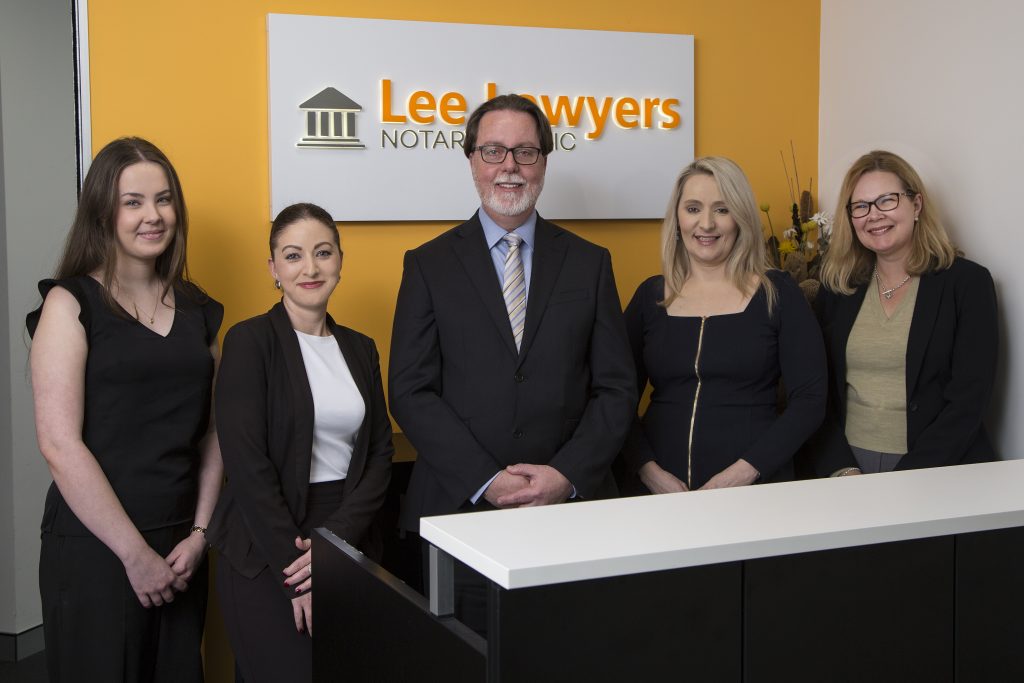Conveniently located in Southport CBD
Contact Your Local Notary Public

Phone
+61 7 5518 7777
admin@leelawyers.com.au
Appointments
Monday-Friday:
9.00 am – 12.00 noon
Send Us a Message
Find Us
Southport Central One
We are conveniently located on Level 5, Southport Central One
56 Scarborough Street, Southport
Free, 3 hour under-cover parking available
FREQUENTLY ASKED QUESTIONS (FAQs)
Common Questions
What’s the difference between a Notary and a Justice of the Peace (JP)?
A Queensland JP can certify and attest documents for this State, or by recognition statutes, other parts of Australia.
A Notary is required to certify and attest documents for use around the world, as authorised legal officer under the Hague Apostille Convention and other international law.
Do I need to make an appointment?
Yes.
We prefer appointments between 10.00 am and 12.00 noon.
Do I need to prove my identity to you?
Yes, you do need to prove identity (ID) to us, by photo ID.
This is usually by producing your passport, national ID card or Australian drivers licence for our inspection.
Secondary ID includes your birth certificate, Centrelink or Medicare card.
Do I also need a notary certified copy of identification?
For simple matters – usually yes. For formal Apostille / Authentications – always yes.
As much as you need to prove identity (ID) to us, formal proof is likely required by the recipient of your documents. If in doubt, ask a notary or lawyer in the destination country about what is needed.
Proof of ID is generally a notary-certified copy of your passport, national ID card or drivers licence. If the document to be notarised mentions an ID number, that is the one we need to see.
DFAT Legalisation
Either DFAT Apostille or DFAT Authentication, depending on whether the country is signatory to the Convention or not.
DFAT Apostille
As a general rule, countries that are party to the 1961 Hague Convention Abolishing the Requirement of Legalisation for Foreign Public Documents require an apostille on documents that qualify as Australian public documents.
A full list of countries that are party to this convention can be found at the Hague Conference on Private International Law website.
DFAT Authentication
As a general rule, documents going to countries that are not party to the Hague Convention require an authentication.
It is important to confirm the requirements with the foreign receiving authority as some countries impose specific requirements on how an authentication should be prepared.
Can you arrange for the documents to be sent to DFAT for Apostille?
We are happy to do so, but it may be quicker and cheaper for clients to make those arrangements themselves.
It can be done either in person at DFAT Brisbane or by post to the DFAT processing centre, Melbourne.
What’s the difference between a Notary and a Solicitor / Lawyer?
It depends on the country, given the notarial branch of the legal profession is probably the oldest.
In Australia and other common law countries the role of Notary bears similarities to both solicitor and JP, generally in regard to international certification and attestation but also in authentication and/or drawing up documents.
In civil law countries the notarial role is more domestic and inquisitorial in nature. For example, both buyer and seller will require the same notary to transact a land conveyance.
Do you draft up documents to be used overseas?
Sometimes for simple work but not for complex work (such as a power of attorney), as this should be done by a notary or lawyer with knowledge of both law and procedure for the country in which the documents are to be used. It is best the notary or lawyer is in the destination country.
Once made, we can notarise the documents.
Can you advise me on how these documents should be used overseas?
We do advise on the notarial work but you should get assistance from a notary or lawyer in the destination country about what is required there.
Unfortunately, with so many nations around the world we could never know the law and current procedure for everywhere.
How much are your fees – simple matters?
For simple matters our fees are $100 for the first document and $50 per document thereafter plus GST.
Remember a certified copy of ID is usually required too.
How much are your fees – for formal Apostille / Authentications?
For notarial certificates (for use with Apostille or Authentication) it is $100 for the certificate, $60 for certified copy of ID and $60 per document thereafter plus GST.
What if I have a large bundle of documents?
For large volume matters, we are happy to agree a reasonable, fixed fee.
Notarial Certified Copy
Usually this means the recipient just wants the notary to make a certified copy of a document, not actually verify its contents or ‘authenticity’.
